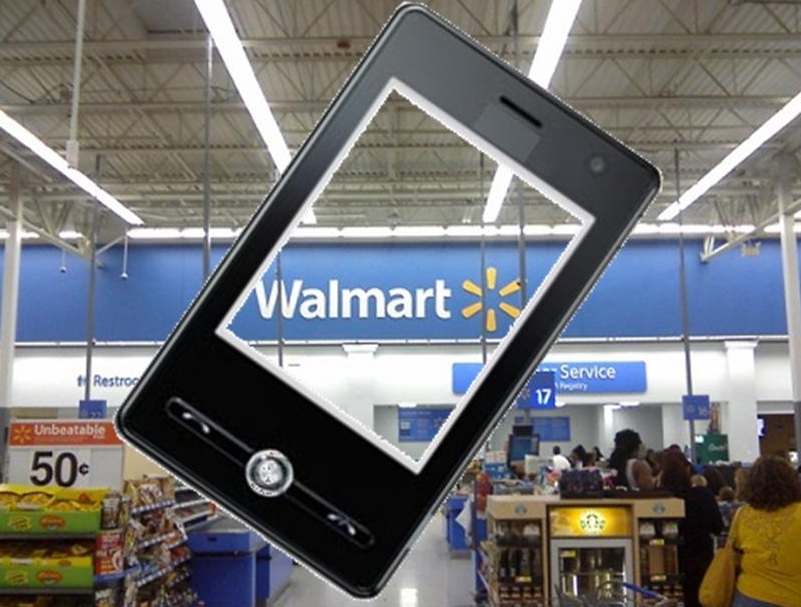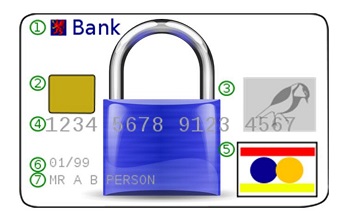CurrentC will soon be more available to consumers and retailers in the US
The Merchant Consumer Exchange, a company created by a consortium of retailers in the United States, has announced that its mobile payments platform, CurrentC, will go public within the next few months. The company has developed this mobile payments platforms in order to accommodate the needs of retailers that want to engage mobile consumers. These consumers are becoming more prominent in the retail space, as they are beginning to rely more heavily on their mobile devices in order to shop for and purchase products online and in physical stores.
CurrentC uses NFC technology and QR codes to support mobile payments
CurrentC is designed to be compatible with NFC-based payment terminals. These terminals use NFC technology to receive financial data, which is used to complete a transaction. NFC technology has become the backbone of mobile payments, but it is not the only tool that can be used for transactions. CurrentC will also be using QR codes to support mobile payments. These codes are meant to be generated by point-of-sale terminals, allowing CurrentC users to scan the codes to complete a mobile payment.
Retail partners have already given some momentum to CurrentC
 The Merchant Consumer Exchange holds an opportune position in the retail space. Because the company was established by several large retailers, these organizations have opted to withhold their support of other mobile payments platforms. Retailers like Best Buy and Wal-Mart have opted to deny transactions made through Apple Pay, opting instead to support transactions made using CurrentC. With the new mobile payments system going public in the near future, retailers are about to see their support for the platform pay off.
The Merchant Consumer Exchange holds an opportune position in the retail space. Because the company was established by several large retailers, these organizations have opted to withhold their support of other mobile payments platforms. Retailers like Best Buy and Wal-Mart have opted to deny transactions made through Apple Pay, opting instead to support transactions made using CurrentC. With the new mobile payments system going public in the near future, retailers are about to see their support for the platform pay off.
Exclusive support for CurrentC is expected to end in the coming months
Those associated with the Merchant Consumer Exchange cannot technical support other mobile payments platforms, but the consortium notes that exclusive support for CurrentC will be done away with in the coming months. This means that retail partners will be able to support other platforms that have already become popular with consumers.
Security standards are set to be implemented in the US in October of this year
The payments industry in the United States is poised for a major shift late this year. In October, liability for fraudulent transactions will move from card companies to retailers if these retailers have not invested in point-of-sale terminals that accept chip-based payments. The shift is meant to address issues concerning the safety of electronic transactions, which has been brought to light by the growing prominence of mobile commerce.
Standards will require retailers to invest in chip-based payment terminals
New security standards will require credit and debit cards to be equipped with a chip that will make transactions more secure. This shift happened more than a decade ago in several European countries and similar security standards are becoming more common throughout the world. In the United States, however, it has taken much longer for these standards to take hold, due to the complexities of the country’s financial structure and the retail industry. Retailers have been particularly resistant to having to fund new payment terminals in order to avoid liability issues.
Security standards could boost the adoption of mobile commerce
 For those interested in mobile commerce, the new security standards could be seen as a boon. Security has long been an issue that the mobile world has had to manage, and the issue has become more important to address with the growing number of people using their smartphones to make purchases. The new point-of-sale terminals that retailers will have to adopt will support NFC-based transactions, which will make it easier for consumers with mobile devices to use their smartphones to pay for products in physical stores.
For those interested in mobile commerce, the new security standards could be seen as a boon. Security has long been an issue that the mobile world has had to manage, and the issue has become more important to address with the growing number of people using their smartphones to make purchases. The new point-of-sale terminals that retailers will have to adopt will support NFC-based transactions, which will make it easier for consumers with mobile devices to use their smartphones to pay for products in physical stores.
Card companies are pushing for security standards to take effect
October 1 is the deadline for retailers to incorporate chip-based payment terminals. There is some speculation that the implementation of security standards will be delayed, but this may cause a loss of faith in the standards themselves. Card companies are eager to have these standards instituted as soon as possible in order to bolster the security of the digital payments industry.
 The Merchant Consumer Exchange holds an opportune position in the retail space. Because the company was established by several large retailers, these organizations have opted to withhold their support of other mobile payments platforms. Retailers like Best Buy and Wal-Mart have opted to deny transactions made through Apple Pay, opting instead to support transactions made using CurrentC. With the new mobile payments system going public in the near future, retailers are about to see their support for the platform pay off.
The Merchant Consumer Exchange holds an opportune position in the retail space. Because the company was established by several large retailers, these organizations have opted to withhold their support of other mobile payments platforms. Retailers like Best Buy and Wal-Mart have opted to deny transactions made through Apple Pay, opting instead to support transactions made using CurrentC. With the new mobile payments system going public in the near future, retailers are about to see their support for the platform pay off.
 For those interested in mobile commerce, the new security standards could be seen as a boon. Security has long been an issue that the mobile world has had to manage, and the issue has become more important to address with the growing number of people using their smartphones to make purchases. The new point-of-sale terminals that retailers will have to adopt will support
For those interested in mobile commerce, the new security standards could be seen as a boon. Security has long been an issue that the mobile world has had to manage, and the issue has become more important to address with the growing number of people using their smartphones to make purchases. The new point-of-sale terminals that retailers will have to adopt will support 